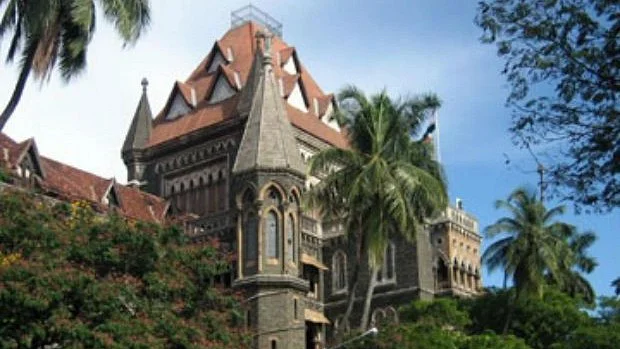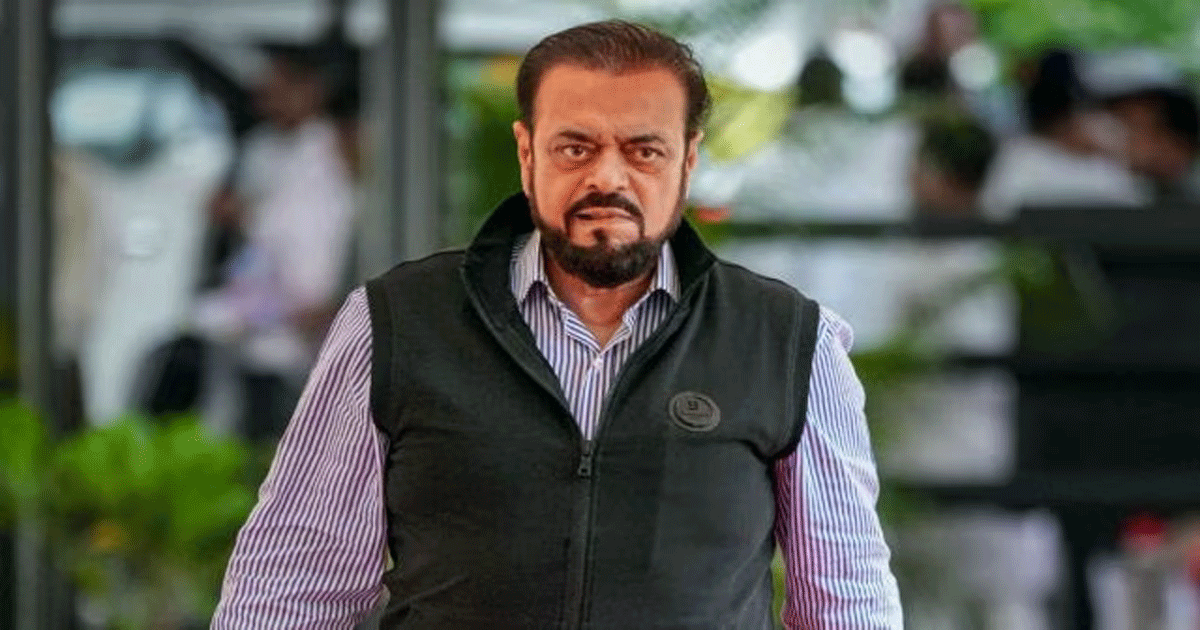Maharashtra
Bombay high court: Mumbai restaurant with eating house permit can’t serve herbal hookah on the menu.

MUMBAI: Bombay high court held herbal hookah cannot be on the menu in a restaurant operating on an eating house license from the Brihan mumbai Municipal Corporation (BMC).
It cannot be countenanced that grant of a license to conduct an eating house is deemed to include a license to conduct Hookah activities and the civic chief is certainly required to consider issues that could be a nuisance or dangerous said A bench of Justices Girish Kulkarni and R N Laddha on April 24 denying permission to ‘The Orange Mint’ a lounge in Chembur to serve herbal hookah (HH).
The HC held that the Mumbai municipal Commissioner Iqbal Chahal has appropriately exercised his discretion under the Mumbai Municipality Act, to prevent HH being served at the lounge. The BMC is noted expected to keep a “continuous vigil’’ on hookah activity of the petitioner said the HC adding, “Once it is clear that hookah activities are not part of the Eating House license conditions, such activity cannot be permitted”.
Justice Kulkarni authoring the order, gave an illustration saying, “In a restaurant or eating house, where children, women and elderly visit for refreshments/eating, it cannot be expected that hookah is one of the menus being served and more particularly of the category as offered by the petitioner using flame or burnt charcoal.’’ The HC said, “This would amount to an absolute nuisance’’ at the restaurant and were it to become a reality, “the impact it would create on such customers at the eating house can just be imagined”.
Under Section 394 of the Municipal Corporation Act, restaurants are issued an eating house license to operate. Section 394, said the HC prohibits certain trades, processes and operated without a license and empowers BMC To seize, destroy to prevent danger or nuisance.
But the section cannot be interpreted to mean such license would permit the restaurant to serve ‘herbal hookah’ said the HC whose order was made available on May 1.
“The Municipal Commissioner in granting license is certainly required to apply his mind to such issues which are dangerous to life, health or property of the citizens, as also, on issues which are likely to create a nuisance…’’the HC said.
Entrepreneur, S B Parkhi, the petitioner through her counsel counsel Mayur Khandeparkar submitted that the license issued by the BMC would include serving of ‘herbal’ hookah. The challenge was to April 18, 2023 order assed by the Medical Officer Health, M/West
Ward, directing to stop serving such herbal hookah within seven days, else they
eating house license shall be revoked, without any further notice.
Brihan Mumbai Municipal Corporation (BMC) lawyer Kunal Waghmare took the stand that an eating house license would not permit any such hookah activity.
Authoring the order, Justice Kulkarni said the section cannot be interpreted “narrowly”.
“On a holistic reading of Section 394 of the MMC Act, the contention of the petitioner that the eating house license granted to her permits “hookah activities” or conducting any “hookah parlour” under the terms and conditions of the eating home license, is totally untenable,’’ held the HC adding, “ The canvass of Section 394 of the MMC Act, is quite broad to take within its ambit articles, trade, operations, which are dangerous to life, health or which are likely to create nuisance, as quite extensively described in the provision”.
The HC reasoned that the legislatures’ intention can be derived from the clear wordings that include in its ambit any article, trade, process or operation which in the opinion of the civic chief are dangerous to life, health or property or are likely to create nuisance “either from its nature” or by reason “of the manner” in which or the conditions under which the same are or are proposed to be used and carried on.
Maharashtra
Mumbai: Husband arrested for killing wife over excess salt in biryani

crime
Mumbai: A sensational case of wife murder has occurred in Mumbai. A man brutally murdered his wife in the Beganwadi area of Mumbai. Surprisingly, the motive behind this bloody altercation is being reported as simply “too much salt in the biryani.” Police acted promptly and arrested the murderous husband, Manzar Imam Hussain.
A Story of Old Enmity and Violence
The family of the deceased, Nazia Parveen, told police that this was not just a one-night stand. Nazia and Manzar had a love marriage two years ago, in October 2023, but soon after their marriage, Manzar’s behavior changed. He would often assault Nazia over trivial matters. About three months ago, Manzar reached the peak of his brutality, beating Nazia so severely that she broke a tooth. Daily domestic quarrels ultimately escalated into a tragic murder. Death from Salt in Biryani
According to police, on the night of the incident, December 20th, Nazia had cooked biryani at home. When Manzar sat down to eat, they began arguing about the biryani being too salty. The argument escalated to the point where Manzar became enraged and hit Nazia’s head against the wall. Nazia died on the spot from severe head injuries and excessive bleeding.
Accused in Police Custody
Upon learning of the incident, Shivaji Nagar police arrived at the scene, took possession of the body, and registered a murder case against the accused husband under the BNS section. Police arrested Manzar Imam Hussain, who was trying to escape. Police are currently interrogating the accused to piece together all aspects of this heinous crime.
Maharashtra
Kirit Somaiya and Nitesh Rane are only spreading hatred in the name of Hindu-Muslim relations, and creating suspicion is their agenda: Abu Asim Azmi

ABU ASIM AZMI
Mumbai: The BJP is engaging in politics of chaos and hatred in the name of Hindus and Muslims for votes. What wrong have Muslims done that Kirit Somaiya and Nitesh Rane are constantly spewing venom against them? They talk about brotherhood, but they have no constructive thinking or strategy to fight corruption. That’s why Hindus and Muslims continue to do the same thing day and night to benefit themselves and create divisions in society. By inciting hatred between Hindus and Muslims, they are creating an atmosphere of hatred in society. This serious allegation was made by Abu Asim Azmi, leader of the Maharashtra Samajwadi Party and member of the Workers’ Assembly. He said that when Khan became the mayor of Mumbai, where were the Muslims, but the BJP has started making it an issue and is trying to scare Hindus in the name of Muslims. Muslims say that someone from Mumbai should be elected mayor so that the city can develop, but an attempt has been made to create divisions in the name of the mayor. Based on a survey conducted a year ago, it is being said that Mumbai’s demographics are changing and the number of Bangladeshi infiltrators has increased. Azmi stated that the government needs to focus on where illegal Bangladeshis are coming from, what the government is doing, and why this infiltration is occurring. However, the way Muslims are being harassed in the name of Bangladeshis is wrong. He stated that radical Muslim leaders are advising Hindus to increase their population. Regarding Navneet Rane’s comment, Abu Asim Azmi said, “Who stopped her from having forty children? But she shouldn’t create suspicion in the name of Hindus and Muslims. This is very harmful. There is a political agenda to create hatred against Muslims. Ahead of the BMC elections, Soumya and Nitesh Rane have become agitated and are spewing venom against Muslims. This should be banned.”
Maharashtra
Mumbai Weather Update For Dec 24, 2025: City Wakes Up To Clear Skies & Winter Chill; Air Quality Improves Majorly, AQI In Moderate Range At 86

WETHER
Mumbai: Mumbai woke up to a cool and relatively crisp Wednesday morning, offering residents a short-lived taste of winter comfort. Clear skies, gentle winds and a noticeable dip in humidity provided early morning relief, making conditions pleasant for commuters, morning walkers and outdoor workers. However, despite the favourable weather, air quality continued to remain a concern.
The India Meteorological Department (IMD) had forecast a bright and comfortable day for the financial capital, with temperatures expected to hover between 17°C and 32°C. While the weather lived up to expectations, air quality emerged as the key issue shaping public health discussions through the day.
According to data from air quality monitoring platform AQI.in, Mumbai’s overall Air Quality Index (AQI) stood at 86 in the early hours, placing it in the ‘moderate’ category. This marked a significant improvement compared to the poor and unhealthy air recorded over the past few weeks.
The improvement comes amid heightened scrutiny of pollution control measures following recent observations by the Bombay High Court, which reprimanded the Brihanmumbai Municipal Corporation (BMC) and the Maharashtra Pollution Control Board (MPCB) over repeated violations of pollution norms at infrastructure project sites.
Despite the overall improvement, pollution sources continue to persist across the city. Construction dust and fine particulate matter remain the primary contributors to Mumbai’s pollution burden. Several large-scale government infrastructure projects, including metro rail corridors, flyovers, coastal road extensions and extensive road-widening works, are underway simultaneously. These, along with aggressive private real estate development, have led to sustained dust emissions. Vehicular pollution during peak traffic hours further compounds the problem, particularly at busy junctions and arterial roads.
Several areas still recorded worrying AQI levels. The Wadala Truck Terminal emerged as a pollution hotspot with an AQI of 183, falling in the ‘poor’ category. Chembur followed with an AQI of 123, while Colaba recorded 117, both also classified as poor. Deonar reported an AQI of 98, placing it at the higher end of the ‘moderate’ range. Malad, a densely populated residential and commercial area, recorded an AQI of 95.
Suburban regions showed comparatively better air quality, though conditions remained far from ideal. Govandi recorded an AQI of 52, while Malad West stood at 62, both in the moderate category. Kandivali East reported 67, Vile Parle West 68 and Jogeshwari 70, indicating that pollution continues to be widespread across the city.
For perspective, AQI values between 0–50 are considered good, 51–100 moderate, 101–150 poor, 151–200 unhealthy and above 200 hazardous.
-

 Crime3 years ago
Crime3 years agoClass 10 student jumps to death in Jaipur
-

 Maharashtra1 year ago
Maharashtra1 year agoMumbai Local Train Update: Central Railway’s New Timetable Comes Into Effect; Check Full List Of Revised Timings & Stations
-

 Maharashtra1 year ago
Maharashtra1 year agoMumbai To Go Toll-Free Tonight! Maharashtra Govt Announces Complete Toll Waiver For Light Motor Vehicles At All 5 Entry Points Of City
-

 Maharashtra1 year ago
Maharashtra1 year agoFalse photo of Imtiaz Jaleel’s rally, exposing the fooling conspiracy
-

 National News1 year ago
National News1 year agoMinistry of Railways rolls out Special Drive 4.0 with focus on digitisation, cleanliness, inclusiveness and grievance redressal
-

 Maharashtra1 year ago
Maharashtra1 year agoMaharashtra Elections 2024: Mumbai Metro & BEST Services Extended Till Midnight On Voting Day
-

 National News1 year ago
National News1 year agoJ&K: 4 Jawans Killed, 28 Injured After Bus Carrying BSF Personnel For Poll Duty Falls Into Gorge In Budgam; Terrifying Visuals Surface
-

 Crime1 year ago
Crime1 year agoBaba Siddique Murder: Mumbai Police Unable To Get Lawrence Bishnoi Custody Due To Home Ministry Order, Says Report












